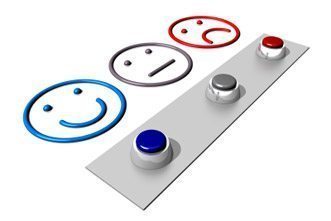Myth #1: I can build a business credit rating and it doesn’t matter whether my personal credit scores are lousy.
You may have heard that small business and personal credit are completely separate. That’s true in some cases, but not all. Some of the business credit reporting agencies, such as D&B and SBFE, for example, do not collect information on individuals’ personal credit habits, so that information will never become part of the businesses’ credit score. But other credit agencies such as Experian and Equifax collect and maintain business and consumer credit information, and they may blend that information with the business’s credit score to produce a combined score for a small business owner.
You may have also seen marketing hype about how a business credit profile can overcome a bad personal credit file. In most cases, however, it’s important that small businesses have both strong business credit ratings, as well as solid personal credit on the part of the owners. This is especially true in the current environment where investors and venture capitalists aren’t handing money out to anyone who can breathe and has a business idea!
Newer businesses will almost always find their personal credit scores determine whether their applications for credit are approved, and even established businesses will find it necessary in some cases to provide the business owner’s personal guarantees on some loans or credit cards.
Reality
Entrepreneurs must be diligent about protecting and maintaining and optimizing their personal credit scores, as well as their business credit ratings.
Myth #2: If I have a strong Paydex(R) Score, I have good business credit.
The Paydex Score is a business credit score created by D&B, the granddaddy of business credit agencies. It carries the same cache as FICO credit scores do in the personal credit arena.
While it is true you need to build a strong Paydex score, D&B isn’t the only game in town. In fact, there are lenders that will never use a Paydex score to evaluate your loan. They will rely on other credit reports and scores offered through Experian, Equifax, the Small Business Financial Exchange (SBFE) and other business credit reporting agencies. And of course, some lenders report customer payment information to one bureau, but not to others.
Reality
Knowing which business credit reports are most often used in your industry, and building a strong rating with them, is essential.
Myth #3: Paying my bills on time is enough to guarantee strong business credit.
One company came to us after they had created a successful business, with over twenty employees. But they couldn’t get a business loan because they hadn’t taken the time to build a business credit profile and didn’t know where to start.
To build business credit, you must borrow or buy products and services from companies that will report your payments to the major business credit reporting agencies. If your payment history is not reported, your activity won’t help build your business credit profile.
In addition, however, business owners should make sure they also have strong financial data about their company. That information will be vital when it comes time to ask a bank or financial institution for a loan.
Reality
Understand what individual lenders are looking for, and approach those where you have the best shot at getting approved.







